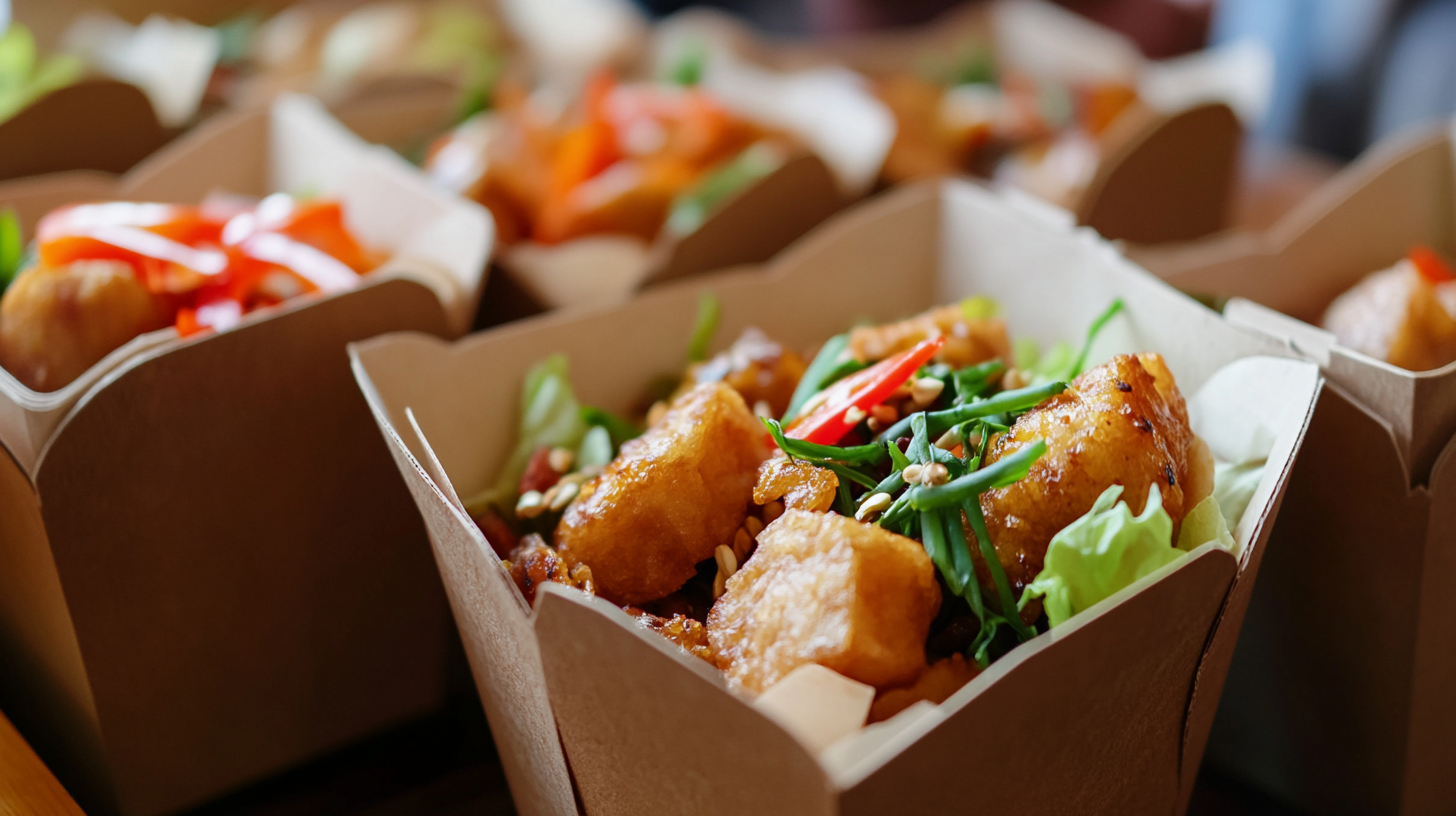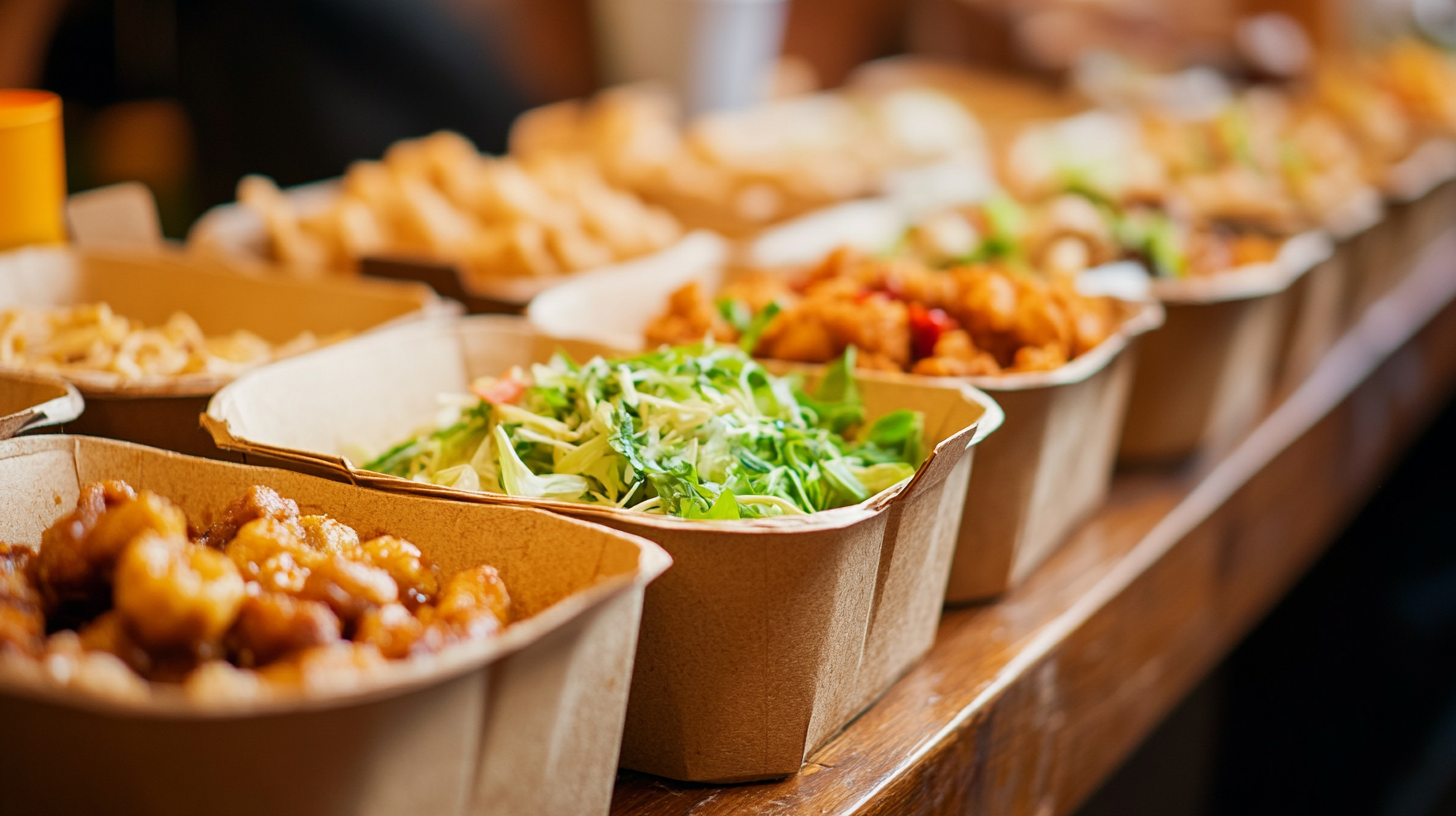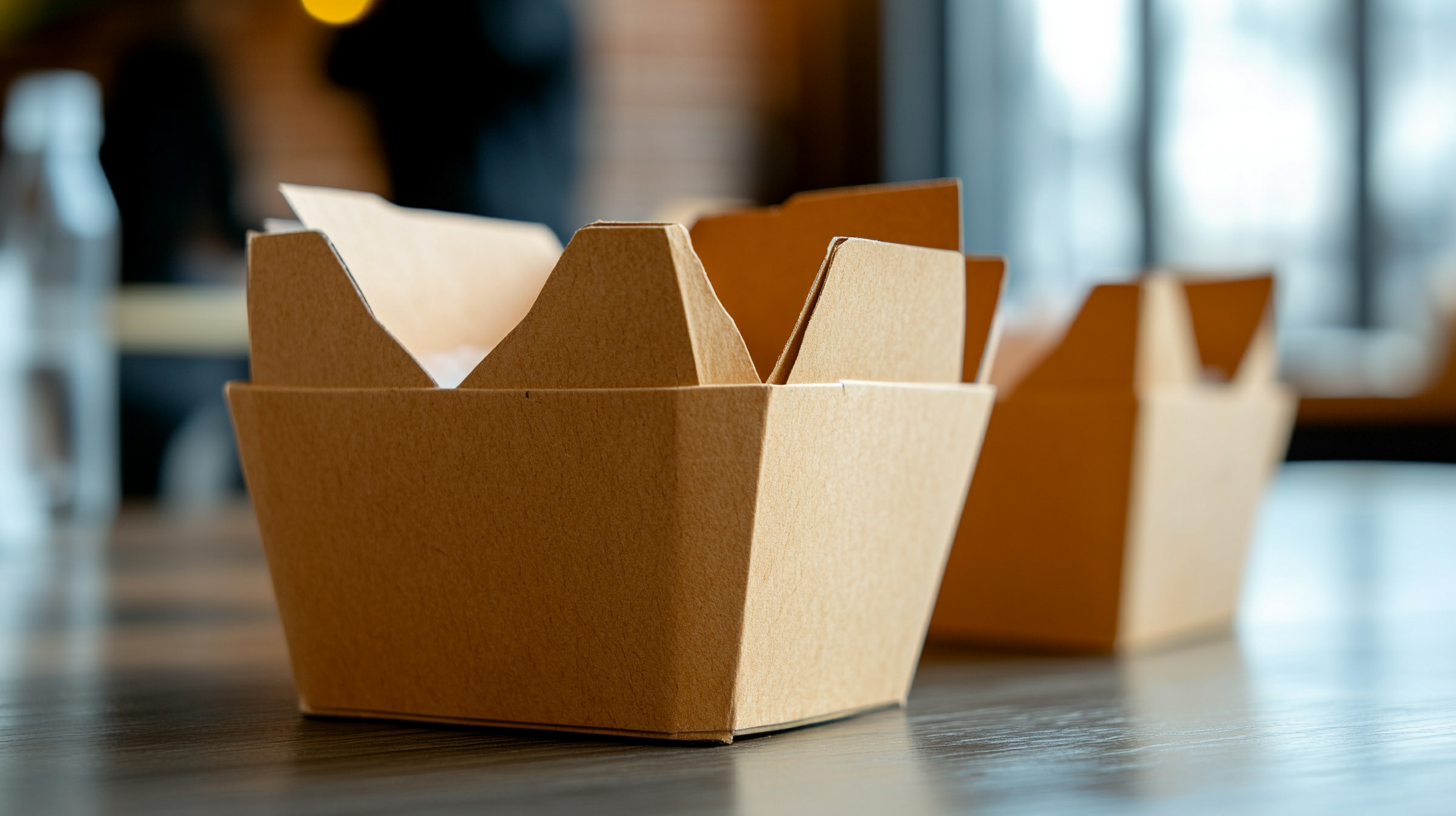Leave Your Message
In today's fast-paced world, the demand for convenient and sustainable packaging solutions has surged, particularly in the food industry. According to a recent report by Smithers Pira, the global market for Disposable Boxes For Food is projected to reach $90 billion by 2025, driven by increasing consumer preferences for ready-to-eat meals and food delivery services. However, the rapid expansion of this market is accompanied by significant challenges, including environmental concerns and industry production standards. Many manufacturers grapple with compliance to regulatory requirements, which highlights the importance of selecting the right disposable food packaging that balances quality, sustainability, and cost-effectiveness. As businesses seek to navigate these complexities, identifying the ultimate disposable food boxes that meet both consumer expectations and industry standards becomes paramount. In this blog, we will explore seven indispensable options for global sourcing that not only enhance efficiency but also align with eco-friendly practices in food preservation and service.

When selecting disposable food boxes for global sourcing, it's essential to consider not only the material and design but also the specific needs of your business and clientele. For instance, if you're catering for outdoor events or food delivery services, opt for sturdy boxes made from biodegradable materials that can withstand various temperatures and conditions. This not only ensures food safety but also aligns with growing sustainability trends in the food packaging industry.
**Tip:** Always evaluate the sizing options available. Choosing the right size is crucial to minimize waste and enhance the presentation of your dishes. Oversized boxes can lead to excess space, making meals look less appealing. Conversely, boxes that are too small may result in spillage, compromising the quality of the food.
Additionally, think about customization features. Many suppliers offer branding options, allowing you to personalize your disposable food boxes. This can strengthen your brand identity and create a lasting impression among customers. As competition grows in the food industry, the right packaging can make a significant difference in attracting and retaining clientele.

When sourcing disposable food containers, it's essential to know what features to prioritize to ensure functionality and efficiency. Recent studies indicate that the global disposable food container market is projected to reach $27.2 billion by 2027, highlighting a growing demand for sustainable and innovative packaging solutions. The top features to look for include material quality, scalability, design versatility, leak resistance, environmental sustainability, insulation properties, and compliance with food safety regulations.
One crucial aspect is the choice of materials. Opt for containers made from biodegradable or compostable materials that align with sustainability trends. In fact, data suggests that 73% of consumers are willing to pay more for eco-friendly packaging. Additionally, design versatility is vital; choose containers that can seamlessly transition from take-out to dine-in settings. This flexibility can significantly enhance customer satisfaction and reduce waste.
Tip: Always consider the target market when selecting disposable food boxes. For events or upscale dining, premium designs that offer aesthetic appeal can make a difference. Moreover, ensure that the containers are robust enough to maintain food temperature, with insulation properties suitable for both hot and cold items. This attention to detail not only meets customer expectations but also enhances the overall dining experience.
As the demand for eco-friendly solutions continues to rise, sustainable disposable food packaging has emerged as a crucial focus in the food service industry. According to a report by Grand View Research, the global disposable food packaging market is expected to reach $474.9 billion by 2025, with a growing segment committed to environmentally responsible materials. Consumers today are increasingly mindful of their choices, pushing brands to adopt greener practices in packaging.
One prominent option in eco-friendly packaging is biodegradable containers, which are made from materials such as cornstarch, sugarcane, and bamboo. These containers break down naturally, minimizing environmental impact. Moreover, using recycled and recyclable materials, such as paper and cardboard, is gaining popularity. Research indicates that over 50% of consumers prefer brands that use sustainable packaging, making it not just an ethical choice but also a smart marketing strategy.
**Tips for Choosing Eco-Friendly Disposable Food Packaging:**
1. Look for certifications like FSC (Forest Stewardship Council) or compostable logos to ensure the materials used are sustainably sourced.
2. Consider the packaging's lifecycle—opt for options that are not only biodegradable but also ensure minimal energy consumption during production.
3. Educate your customers about the benefits of using eco-friendly packaging through your branding, which can enhance loyalty and attract environmentally-conscious consumers.

When it comes to disposable food boxes, the choice of material plays a crucial role in sustainability and functionality. Paper-based boxes are increasingly popular due to their biodegradable nature, making them an eco-friendly option. They are lightweight, versatile, and perfect for a variety of food items, from takeout meals to desserts. Many manufacturers are now using recycled paper to create these containers, which further reduces environmental impact. With options for compostable coatings, paper boxes can provide a protective barrier against moisture and grease without compromising biodegradability.
On the other hand, plastic containers have long been favored for their durability and convenience. However, the environmental concerns surrounding single-use plastics have prompted a shift toward biodegradable alternatives. These innovative materials mimic the properties of plastic while breaking down more quickly in natural environments. Made from plant-based sources, biodegradable containers offer a sustainable solution without sacrificing the performance needed for food storage and transport. As global sourcing evolves, businesses and consumers alike are prioritizing these sustainable options to ensure that convenience does not come at the expense of our planet.
When sourcing disposable food boxes for your business, ensuring quality and compliance is crucial to safeguarding your brand and meeting regulatory standards. Begin by choosing suppliers who provide certifications for their products, such as FDA approval or ISO certifications. These documents validate that the materials used in the food boxes are safe for food contact and manufactured under strict guidelines. It is essential to verify this compliance to avoid potential legal issues and maintain customer safety.
In addition to certifications, consider requesting samples before committing to a bulk order. Testing these samples not only helps ascertain the durability and usability of the food boxes but also provides insights into their performance in real-world scenarios. Assess aspects such as resistance to leakage, temperature tolerance, and overall presentation. Collaboration with suppliers who are transparent about their sourcing practices and manufacturing processes can also enhance confidence in the quality of your packaging materials, thus ensuring that they align with your company's sustainability goals and consumer expectations.
| Box Type | Material | Capacity (ml) | Suitable For | Compliance Standard |
|---|---|---|---|---|
| Microwavable Container | BPA-free Plastic | 500 | Soups, Stews | FDA Compliant |
| Eco-Friendly Box | Recycled Paper | 300 | Salads, Cold Dishes | EU Standards |
| Takeaway Box | Polystyrene | 700 | Fast Foods, Burgers | ASTM Compliant |
| Corrugated Pizza Box | Corrugated Cardboard | 1000 | Pizzas | FDA & ISO Certified |
| Compartment Food Box | Sugarcane | 600 | Meal Portions | EN13432 Certified |
| Chilled Food Container | Polyethylene | 450 | Desserts, Cold Cuts | USDA Approved |
| Biodegradable Tray | PLA (Plant-based) | 400 | Bakes, Finger Foods | Compostable Certification |
